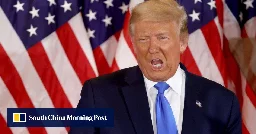
中国的最新发展, A place to learn about China, Chinese and China's latest developments, (Reddit's Sino)
- THIS SUNDAY, an online launch for Carlos Martinez's new book "The East is Still Red", at 11am US Eastern Standard Time

Speakers: 📢 Carlos Martinez 📢 Chen Weihua 📢 Qiao Collective 📢 Dan Kovalik 📢 Amanda Yee 📢 Ben Chacko 📢 Sara Flounders 📢 Radhika Desai
Register: https://www.eventbrite.ca/e/the-east-is-still-red-book-launch-tickets-686727700037 Stream: https://youtube.com/live/m8IqgNi3n-g?feature=share
- Does this video capture nuance about China in a correct way?: Is China Surpassing the U.S. in Public Transit and Infrastructure?
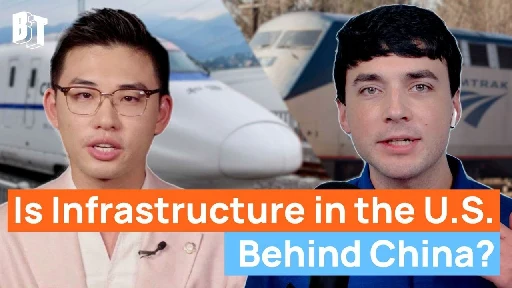
YouTube Video
Click to view this content.
I'm trying to learn more about modern day China, the recent history of China, and the material conditions and contexts that bring certain things into the popular news media.
I watch BreakThrough News occasionally, and this video came up today, and from my inexperience it seems to be a decent, neutral look at a small part of China's public infrastructure compared to the U$A, where I am.
The hosts go back and forth sharing details about cost and goals and some political theory, so I'm interested in the more experience views of people on here. Is there anything that is left out that is important enough to mention? Are there any controversial topics in this video that one might miss if they aren't informed?
Thanks for helping out a comrade learn!
- China using families as 'hostages' to quash dissent abroadwww.bbc.co.uk China using families as 'hostages' to quash Uyghur dissent abroad
Refugees and activists tell the BBC intimidation tactics are tearing apart Uyghur communities overseas.
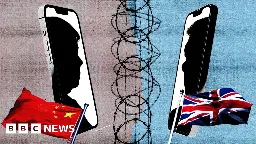
This guy is the researcher cited: https://www.sheffield.ac.uk/seas/people/academic-staff/david-tobin
At first glance, he seems somewhat legit, but I've never heard of him before. What do we know about this guy, his research, and what's the best way to understand these claims?
cross-posted from: https://lemmy.zip/post/863212
> cross-posted from: https://lemmy.zip/post/863209 > > > Archived version: https://archive.ph/5Ok1c > > Archived version: https://web.archive.org/web/20230731013125/https://www.bbc.co.uk/news/world-66337328
- Boba liberalism aside, how would you address the issue of China's soft power, according to AINI?

YouTube Video
Click to view this content.
Bear with me, on this boba liberal's video.
She talks a bit about restriction, censorship, and standardization of exported media by the ebil CCP /s, but rather focuses it on its consequent dullness, on-the-nose approach and cheapening of its media products...
How would you respond to this, point by point? (Sorry if I may sound like I argue in bad-faith)
Additional thanks if you don't rely too much on whataboutism (yes, we can apply the artificial-politics-imposed media label, associated with CPC, on U.S media, like G.I Joe and Rambo, some of them even funded by the Department of Defense)
- Can we change the name of this community?
It looks like the creator wanted to win the biggest community name contest.
- U.S. Secretary of the Treasury Janet Yellen’s lies about the People’s Republic of Chinawww.workers.org As Yellen dictates terms to China What we defend, what Wall Street wants to destroy
What is the material basis of the growing hostility on every level of the U.S. ruling class toward China? No great struggle is based on the personalities or aspirations of individuals. At the root is a very concrete, material basis that drives the conflict. Otherwise, meetings, discussions and di
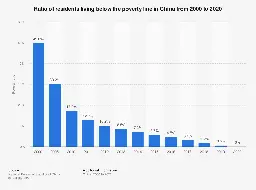
>The most presumptuous statement from Yellen was to credit capitalism with ending poverty in China: “A market-based approach helped spur rapid growth in China and helped lift hundreds of millions of people out of poverty. This is a remarkable economic success story.” (treasury.gov, July 7) > >But it was not the ruthless capitalist market that accomplished this historic feat. It was state planning, in the hands of the working class. The conscious development of small industries, local markets, skill training and infrastructure in rural, underdeveloped areas helped raise the standard of living for millions. > >China was able to accomplish something that no capitalist economy in history has accomplished. It was able to end poverty and hunger through a web of social and economic development programs. More than 800 million people quickly benefited, as will billions more in generations to come. > >It was the largest and most rapid improvement in material conditions in modern history. China had been one of the poorest countries on Earth. Now it is an economic powerhouse.
- ‘The East Is Still Red’ a necessary readwww.workers.org ‘The East Is Still Red’ a necessary read
With his recently published book, “The East Is Still Red,” Carlos Martinez has clarified the role of the Chinese revolution in improving the lives of a fifth of humanity. The book is a contribution to the discussion among Marxists regarding the class character of the People’s Republic of China. A
>Martinez shows the achievements of People’s China in the chapters, “China’s long war on poverty” and “China is building an ecological civilisation.” If it were just a problem of presenting facts, he would win by a landslide. His challenge is overcoming imperialism’s domination of the worldwide media and miseducation, aka, the Big Lie. > >For example, Martinez quotes from international agencies to point out that China’s recent economic growth has moved hundreds of millions of people out of poverty into a stable and secure life: “To eradicate extreme poverty in a developing country of 1.4 billion people — which at the time of the founding of the People’s Republic of China in 1949 was one of the poorest countries in the world, characterized by widespread malnutrition, illiteracy, foreign domination and technological backwardness — is without doubt ‘the greatest anti-poverty achievement in history,’ in the words of United Nations Secretary General António Guterres.” (un.org/press/en/2019/sgsm19779.doc.htm) > >This should convince anyone. However, imperialism’s Big Lie condemns everything in China, twisting reality into its opposite and imposing a distorted version of the world. This skews perception among much of the population in the imperialist heartlands of North America, Europe, Japan and Australia. > >In the chapter, “Manufacturing consent for the containment and encirclement of China,” the author describes how mind-bending weapons of the imperialist ruling class have waged a relentless ideological assault on People’s China, in preparation for war. > >What makes the book important is that it arms anti-imperialists with the truth. They can learn from it and repeat this truth to all who will pay attention. This process is a first step to building solidarity with People’s China at a time when the U.S. government wages an economic war and sails warships near the Chinese coast.
- Is there a community to see chinese memes?
Question in title, just looking for more chinese stuff to digest on lemmy
- Slides from a Lecture about 1 Country 2 Systems and the HK National Security Law
This was a lecture given to foreign teachers, in English, by Miriam Lau - former member of the Legislative Council (Hong Kong's legislative branch of government) and former member of the National People's Congress.
The context of this lecture is that teachers in Hong Kong must now pass an exam showing sufficient understanding of the National Security Laws and its implementation, in order to apply for new jobs.
Note that Miriam Lau is not a Marxist-Leninist or Communist. She's a Pro-Beijing Conservative Liberal, and a solicitor (although there were a lot of snarky liberals in the audience that had no idea who she was and just assumed she was a Commie). However, there's a lot of useful information here for debunking the accusations libs make that the NSL destroys Hong Kong's freedoms.
One thing I learned from this lecture is that the Court of Final Appeal (HK's highest court) has the power of final adjudication in HK. You can't take your case to a higher court after the CFA makes a ruling. It's like if California didn't answer to the Supreme Court, had its own "Supreme Court of California" instead, and didn't have any nationality requirements for its judges apart from the Chief Justice, with most of the judges being foreigners. Compare that to any autonomous territory in any other country.
Part 1 - The Constitution, The Basic Law, and One Country Two Systems
- How China Maintains Working Class Rule: Highlighting the Feedback Mechanisms of the Chinese Political Systemmedium.com How China Maintains Working Class Rule: Highlighting the Feedback Mechanisms of the Chinese System
This text will illuminate the robust structure that ensures the continued rule of the working class in China.
- Trump would execute drug users; the People’s Republic of China rehabilitates themwww.workers.org Trump would execute drug users – China rehabilitates them
In true demagogue fashion, in May 2023 Donald Trump demanded a ramping-up of the so-called “War on Drugs.” In Manchester, New Hampshire — where opioid deaths have spiked — Trump declared that “the only way” — in his world — to deal with the question of drugs was to execute drug dealers. In the exact

>[The People’s Republic of] China’s plan was a multistep one. First, they used ideology to teach the populace that drugs were a tool that put their nation on a backwards course and that drugs themselves were highly deadly. Then, they asked that people growing opium destroy their crops and replace them with helpful crops such as wheat. > >They had revolutionary communists destroy smuggling and selling operations in China. Lastly, the addicted themselves were encouraged to admit their problems and to work in the new society. This approach could be considered a proto-12 Step approach, as the 12 Steps demand service to society. > >The idea of executing drug dealers, which would inevitably catch drug users on the net, is not just inhumane and cruel; it is also ineffective. What helps stop drug addiction and sales is a multistep approach that we can synthesize: Acknowledge that some addicts can never achieve abstinence; acknowledge that medication-assisted treatment is one of the pathways to recovery, and acknowledge that we can do what the revolutionary Chinese did. > >The Chinese path to freedom from addiction required Marxism-Leninism-Mao Zedong thought and a post revolutionary society to work, yet aspects of this approach can be used within the bourgeois state. We — addicts, loved ones of addicts, people of good faith, and revolutionary Marxists — should fight back against the Duterte-Trump strategy to murder people.
- China pumps out half of world’s energy storage research as US share declineswww.scmp.com China pumps out half of world’s energy storage research as US share declines
An overview of China’s output in 2022 reports it has become the ‘most active’ country in the hunt for scalable storage options for renewables.

Full text: China accounted for half of the world’s research papers into energy storage technology published last year, an increase of 5 per cent on 2021, according to a report by a team of researchers from a number of Chinese universities and institutes.
In contrast, contributions by US scientists made up 10.5 per cent of papers on the subject in 2022, a 2 per cent fall on the previous year’s figures, the researchers said, in a paper published by the journal Energy Storage Science and Technology. China had become the “most active country in the world in energy storage fields on all three aspects of fundamental study, technical research, integration and application”, the report said.
The researchers searched the Web of Science index using the keywords “energy storage” as part of the study, which gives an overview of China’s research advancements in the field.
China is already the world’s leader in renewable energy installations and is also leading in energy storage, with a capacity of 59.8 gigawatts at the end of 2022, according to the China Energy Storage Alliance.
Most of China’s electricity is derived from coal and energy storage is key to the country meeting its net zero goals. But a lack of large-scale methods of increasing capacity is hampering the total generation potential of existing renewable projects.
For example, solar energy accounts for 16.6 per cent of China’s installed power generation capacity but is delivering just 2.73 per cent of usable electricity to the grid, as of the first quarter of 2o23, according to the National Energy Administration.
China remains reliant on pumped hydropower for its energy storage and leads the world in continuing to build facilities based on the technology. In 2022, the highest proportion of new storage capacity was derived from hydropower, the report said.
While China has the largest pumped hydropower storage capacity in the world, its main research focus has been on other methods, such as a variety of battery-based tools as well as thermal and flywheel technologies.
Most of the research papers released in 2021 focused on alternatives to pumped hydropower, according to last year’s report, a situation that continued in 2022. The United States – which continues to rank among the top spots for energy storage – launched an initiative in 2020 to maintain its global position. The Energy Storage Grand Challenge goal is for all of the United States’ storage technologies to be produced domestically by 2030.
The researchers found that China had greater access to the materials and means of production than the US, but was still grappling with scalability to meet the storage demands of existing renewable installations and their energy output. Development of new renewable facilities has continued in China, even though the energy output of solar and wind projects is not being fully harnessed, according to the NEA.
However, the increase in research and a rise in patents relating to energy storage highlighted in the report suggests that the scientific community is prioritising innovation to help China expand its large-scale capacity.
According to the report, 100 megawatt projects are becoming the norm in China, where many developments are under way.
The Chinese Academy of Sciences was responsible for one of a number of innovative advancements in 2022, with its research into a 300MW compressed air storage system, the report said.
The researchers said China would remain dominant in global rankings for published research, patent applications and the installation of energy storage capacity.
Next year would continue to be an important one for the development of energy storage and China’s technology in the field was expected to be the world’s best in the coming five to 10 years, they said.
- Neoimperialist media can’t stop lying about mosques in the People’s Republic of Chinawww.workers.org Imperialist media can’t stop lying about mosques in China
The writer participated in a delegation organized by the China/U.S. Solidarity Network that visited China from May 11 to May 31. Over the last few years, the U.S. media have routinely run stories accusing China of the erasure of Islam, in part based on the alleged mass demolition of mosques. ...
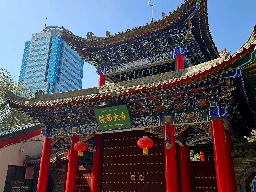
>The Australian Strategic Policy Institute (ASPI), an anti-China think tank with ties to weapons manufacturers like Lockheed Martin and Raytheon, has produced various articles and an interactive map of China that supposedly lists sites of “forced labor camps” and “destroyed mosques.” > >This so-called database has been cited as a source by many articles criticizing China. But like other widely discredited sources — such as the far-right religious extremist Adrian Zenz, known as the architect of the “Uyghur genocide” narrative — the ASPI map contains a plethora of misinformation. This map, dubbed the “Xinjiang Data Project,” has incorrectly listed mosques under renovation as “demolished,” including the Keriya Aitika Mosque in Hotan, Xinjiang. > >The renovation of mosques is widely exploited by dishonest reporters looking to spin a story. Renovations of mosques, housing units, cultural sites and virtually every other type of structure are common throughout China, especially in southwestern regions like Xinjiang, where earthquakes are common.
- Eyewitness Xinjiang: the reality vs. U.S. propagandawww.workers.org Eyewitness Xinjiang: the reality vs. U.S. propaganda
The author is a co-director of the International Action Center and a contributing editor to Workers World newspaper. A slightly abridged version of this article was published in Global Times. U.S. imperialism’s hostility to China is increasing — with military threats, new rounds of sanctions and
>What we saw in Xinjiang were vibrant cities — Kashgar and Urumqi — full of tens of thousands of tourists and a local population of many nationalities. Huge and colorful marketplaces and bazaars, almost all run by Uygur families, stretched for blocks. Busy subway lines crossed the cities. Everywhere we saw food markets brimming with inexpensive produce. Restaurants, numerous cafes and street food stalls were packed with local people. In the evenings, the streets were lively and full. > >Numerous international studies, ignored in the Western media, back up our observations. > >The illiteracy rate in Xinjiang has fallen to 2.66%, lower than China’s impressive 2.85% national average. Before the 1949 Chinese Revolution, illiteracy was 80% throughout China and more than 90% in Tibet and Xinjiang. Today, 97.51% of small children are in preschool programs. Some 98.82% of the youth are enrolled in senior high schools in Xinjiang. (tinyurl.com/bdfyxn29) > >Over the past 60 years, the Uygur population has increased from 2.2 million to about 12 million, and average life expectancy has grown from 30 to 75 years. > >Drives through the countryside revealed fully mechanized agriculture with tractors, planters, drone sprayers, irrigation canals and acres of plastic-topped greenhouses. We saw no fields with workers doing hand labor — hoeing, picking or trimming. This is confirmed in numerous reports and many photos. The mechanization of cotton production is at 90%. (tinyurl.com/37s3e7e9) > >In Kashgar, the 15th-century Idkah Mosque houses up to 20,000 worshipers. It is only one of the many Islamic centers and mosques that we saw while walking the city streets and in several villages. Tall, slender minarets and dome-shaped roofs seemed to be a part of every block. > >We met with Uygur people working in food stalls, small groceries and farms. People of many nationalities are construction workers, truck drivers, animal herders, veterinarians, teachers and retirees. Many of them described how government subsidies and training programs had dramatically improved their living conditions and life opportunities.
- Xi Jinping promises to unify Taiwan as China marks 100 years of Communist Party | ITV News (to remember)

YouTube Video
Click to view this content.
- HanziGraphhanzigraph.com HanziGraph
Learn Chinese by exploring the relationships between characters alongside examples that illustrate their use.
>Learn Chinese by exploring the relationships between characters alongside examples that illustrate their use. To get started, click any hanzi or word in the diagram. You can search for hanzi, Chinese words, or English words. You're viewing Simplified characters. You can choose from Simplified Chinese, Traditional Chinese, Cantonese, or the HSK wordlist in the menu in the upper left. You can zoom, drag, and re-arrange the diagram however you please. Interested in how words, not just characters, flow together? Try the Show Flow button. HanziGraph is free and open source. Check out the code on GitHub. See the FAQ for more information.
- Chinese translation now available for Metal of Dishonor: Depleted Uraniumwww.workers.org Chinese translation available: ‘Metal of Dishonor-Depleted Uranium'
As NATO forces resume using radioactive weapons, now shipping them to Ukraine, China has translated “Metal of Dishonor,” a groundbreaking book compiled 25 years ago by the International Action Center warning of the devastating consequences of deploying depleted uranium (DU) munitions. The danger
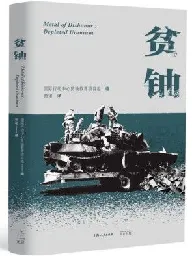
>The IAC thanks the Chinese translator, Associate Professor Jia Jun of the Center for Modern World History, School of History, Beijing Normal University and Luminaire Books, a division of Shanghai Century Publishing Co., Ltd. for this timely contribution. > >Significantly, “Metal of Dishonor,” published in 1997 and reissued in 1999, played an important role in gathering a great deal of the suppressed information on the devastating impact of DU’s low-level radiation. The book, its study guide and documentary, “Poison DUst,” were part of an international campaign to ban DU weapons. > >The statement calling for the ban on the use of these weapons had tens of thousands of signers. It was translated into many languages and demonstrated the powerful campaign of antiwar forces exposing the impact of the use of these horrific weapons by Washington in the U.S. 1991 war in Iraq and the 1999 U.S./ NATO war to break up Yugoslavia. > >The book is an alarming exposé of the dangers of the Pentagon’s DU weapons; it issued a dire warning about their devastating effects on soldiers and civilians. In it, scientists, Gulf War veterans, and leaders of environmental, anti-nuclear, anti-military and community movements discuss the connection of DU to Gulf War Syndrome and the then-new generation of radioactive conventional weapons.
- Debunked: Media falsely claims China is building spy base in Cuba
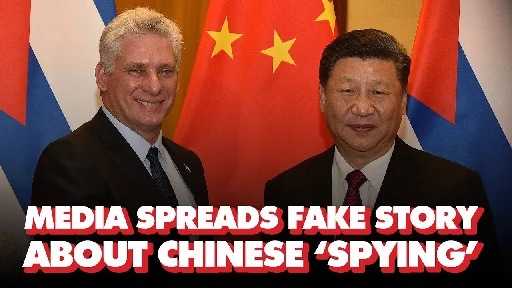
YouTube Video
Click to view this content.
A comprehensive explanation of the recent fake 'Chinese spy base', and why it's being peddled right now.
- China’s LGBT community doesn’t need Western ‘gay pride’www.scmp.com China’s LGBT community doesn’t need Western ‘gay pride’
For LGBT people in China, sexuality is part, not all, of who they are as their familial role and national identity take precedence. What they want most is love and acceptance, not pride parades.
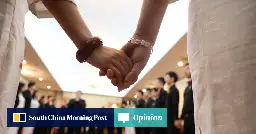
US-backed news outlets love to exaggerate and complain about China's supposed anti-LGBT policies that don't actually exist. There's some really good discussion around this on r/Sino Reddit.
- Chinese Ambassador to the UN: Developed countries bear historical responsibility for global climate change and should take the lead in significantly reducing emissions
Translated: Statement by Ambassador Zhang Jun at the Security Council Open Debate on Climate and Security
China welcomes Minister Muhairi for presiding over today's meeting and thanks Under-Secretary-General Lacroix, Mr. Santos and Ms. Kedri for their briefings.
The challenges of climate change to human life and the development of all countries are becoming more and more prominent, and it has become more urgent and important for the international community to unite and collaborate to address climate change. China supports the international community to adhere to the main channel of the UN Framework Convention on Climate Change, the principles of common but differentiated responsibilities, equity and respective capabilities, strengthen policy coordination, increase support for developing countries in terms of finance, technology and capacity building, fully and effectively implement the Convention and its Paris Agreement, and promote continuous new progress in global climate governance. China supports the important role of the United Nations in addressing climate change and fully supports the UAE in hosting the 28th Conference of the Parties (COP28) to the United Nations Framework Convention on Climate Change, and believes that under the leadership of President Sultan Al Jaber, the conference will achieve important positive results.
Regarding the relationship between climate and security, the Council has met several times to discuss it, and it is clear that there are differences of opinion that still need to be explored in depth. On the one hand, we have seen that in developing countries with weak climate resilience, extreme weather and natural disasters are frequent, seriously undermining development gains, exacerbating resource tensions and triggering communal conflicts. At the same time, from a broader perspective, the link between climate change and security risks is very complex, and the exact transmission mechanism between the two is not yet fully understood. It is not scientific to deny that there is a link between climate and security, nor is it scientific to generalize climate issues and talk about the security implications of climate change in isolation from specific contexts. The key is to do the right thing in the right way.
To this end, we advocate that the Security Council should make specific analysis of the relationship between climate and security, taking into account its own mandate, established agenda and specific country situations, as well as the resources and means at its disposal. We should adhere to a problem-oriented approach, identify the root causes of security risks, and propose practical and effective solutions. Haiti's recent floods have exacerbated the humanitarian situation, which is somewhat linked to climate change, but the underlying challenges in Haiti remain gang violence and political corruption. Iraq faces ecological challenges such as water scarcity, drought, and desertification, which are also somewhat related to climate change, but the primary challenge in Iraq is the severe consequences of foreign invasion. Years of warfare, including the use of depleted uranium munitions by outside forces, have led to irreparable degradation of Iraq's ecological environment, and the legacy of war has rendered large areas of land unusable. If these root causes are ignored in the work of the Security Council, it is unlikely that the right direction will be taken to solve the problem and that it will have the desired effect.
It is also worth considering why the economic and social consequences of climate extremes are different in North America and the Pacific Islands. It is clear that there is a huge difference in the ability of countries to cope with climate change, and behind it is a huge gap in the level of development. Therefore, the most fundamental way to interrupt the transmission of climate change to security risks is to start with development, help developing countries cross the development divide and improve their climate resilience and response capacity. In this regard, the Security Council should not become a talk shop and pursue "political correctness", but should be down-to-earth and do something practical for developing countries to address security risks in accordance with its own mandate.
First, the United Nations Framework Convention on Climate Change and its Paris Agreement are the most important guidelines for addressing climate change. The basic consensus that is clear from the Convention is that developed countries have a historical responsibility for global climate change. They are supposed to take the lead in significantly reducing emissions and achieve net zero or even negative carbon emissions earlier. Unfortunately, since last year, some developed countries have regressed in their energy policies, and fossil energy consumption and carbon emissions have increased rather than decreased, a disturbing situation that deserves the Council's close attention. This also raises the question that if climate change constitutes a potential security threat, does the negative retrogression in the implementation of emission reduction obligations, including unilateral withdrawal from the Paris Agreement, also constitute a threat to international peace and security? Can the Security Council take enforcement measures to correct these negative behaviors as authorized by the UN Charter? This deserves our in-depth consideration.
Second, inadequate financing is the most important bottleneck for global climate governance. Developed countries have a lot of historical debts on climate finance and need to fill the $100 billion annual gap as soon as possible and set new collective quantitative funding targets after 2025. Last year's Sharm el-Sheikh Conference (COP27) established the "Loss and Damage Fund", and developing countries are eagerly awaiting the fund to be operationalized as soon as possible. The relevant UN agencies should play a role in promoting the implementation of the fund, including the establishment of a mechanism to monitor the implementation of climate finance and to promote the translation of political commitments into concrete actions by developed countries. The Security Council has a role to play and should also make a strong voice in these areas. At the same time, the Security Council should reflect its role through action. As a first step, it can consider authorizing missions in countries affected by climate change to collect information on the annual receipt of climate financing by developed countries and to brief the Security Council on a regular basis. Of course, the missions themselves should also set a benchmark and become a role model in energy conservation and emission reduction, and contribute to climate action in the host countries.
Third, the green protectionism of developed countries is worthy of caution. Under the pretext of promoting their own energy transition, some countries have invested hundreds of billions of dollars in high subsidies for their manufacturing industries through various unfair bills and administrative initiatives, while imposing trade barriers against the green industries of other countries and cutting off developing countries' access to green technologies. These actions blatantly violate WTO rules, disrupt global green industry and supply chains, undermine countries' efforts to achieve sustainable development goals, and run counter to the international community's collective efforts to address climate change. They also make the pretty slogans of the countries concerned look pale and hypocritical. The Council has a role to play and should firmly oppose such acts and practices. Green protectionism has become a chain that binds developing countries to the low end of the global value chain, and another chain that clamps down on the development and stability of developing countries is illegal unilateral sanctions. Many sanctioned countries have difficulty in obtaining even the most basic means of living and production, let alone improving their ability to cope with climate change. The Security Council should listen to the voices of the people in the affected countries, pay great attention to the climate and security risks caused by green protectionism and illegal unilateral sanctions, and dare to take targeted measures to uphold fairness and justice.
Madam President.
The ecological environment is the foundation of human survival and development. China upholds the green development concept of "green water and green mountains are golden mountains" and insists on the Chinese modernization path of harmonious coexistence between human beings and nature. Over the past decade, China has taken a responsible attitude and implemented its commitments with actions, reducing CO2 emissions per unit of GDP by 34.4 percent, building the world's largest carbon market, and vigorously carrying out reforestation and sand control, making great achievements in ecological construction and environmental protection that have attracted world attention. China has actively participated in South-South cooperation on climate change and provided support and assistance to other developing countries, especially small island states, LDCs and African countries, in addressing climate change, which is highly appreciated by the majority of developing countries. China is willing to continue to work together with all parties to promote the construction of a fair and reasonable global climate governance system with win-win cooperation, so as to jointly build a clean and beautiful home on earth.
Thank you, Madam President.
- Learning with Texts
"The software is 100 % free, open source, and in the public domain. You may do with it what you like: use it, improve it, change it, publish an improved version, even use it within a commercial product. English is not my mother tongue - so please forgive me any mistakes.
▶ Abstract - [↑]
Learning with Texts (LWT) is a tool for Language Learning, inspired by: Stephen Krashen's principles in Second Language Acquisition, Steve Kaufmann's LingQ System and ideas from Khatzumoto, published at "AJATT - All Japanese All The Time". You define languages you want to learn and import texts you want to use for learning. While listening to the audio (optional), you read the text, save, review and test "terms" (words or multi word expressions, 2 to 9 words). In new texts all your previously saved words and expressions are displayed according to their current learn statuses, tooltips show translations and romanizations (readings), editing, changing the status, dictionary lookup, etc. is just a click away. Import of terms in TSV/CSV format, export in TSV format, and export to Anki (prepared for cloze tests), are also possible."
- Chinese Characters Etymologies (For those with old machines without Chinese characters)
"Essentially I have just taken the Shuowen's data on the components for each character and run it through a program to generate the trees implied by this data. I have then translated the explanations from the Shuowen and from later commentaries by traditional Chinese sources for each character, and added character and word definitions. The dictionary does not contain original research, but rather it is a demonstration that computerized cross-referencing now makes it possible to more fully implement Xu Shen's original vision for Chinese lexicography. I hope that other printed and electronic dictionaries will similarly be designed to further his vision.
Note that this website was created in 1996 before standard browsers could display Chinese characters, so instead images are used for all of the Chinese characters. I apologize that this makes it impossible to copy and paste from the website. "
- Anki - powerful, intelligent flashcards
Anyone who needs to remember things in their daily life can benefit from Anki. Since it is content-agnostic and supports images, audio, videos and scientific markup (via LaTeX), the possibilities are endless. For example:
Learning a language Studying for medical and law exams Memorizing people's names and faces Brushing up on geography Mastering long poems Even practicing guitar chords!
- China’s scientific supremacy shifting balance of powerasiatimes.com China’s scientific supremacy shifting balance of power
By at least one measure, China now leads the world in producing high-quality science. My research shows that Chinese scholars now publish a larger fraction of the top 1% most cited scientific paper…
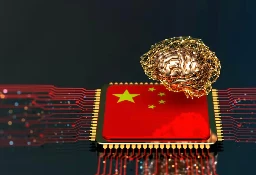
- When you really think about it, the UK has some BALLS to wail on about Hong Kong autonomy
You know, after illegally occupying it for 100 years, holding exactly zero elections during that occupation, discriminating against the native Chinese population there and favouring British migrants, all after getting literally all of #China addicted on opium and then strong arming them to sign Hong Kong away.
Yes, you respect Hong Kong's autonomy SOOOOO much, UK.
-----
Also, you want to talk autonomy? The majority of HK citizens support the PRC. Look at their election results, not parliament representation because First Past the Post is trash, but the raw numbers on who voted for what party there.
Also also, the majority of Hong Kong citizens DESPISED the protests. It massively exacerbated the COVID-19 outbreaks there (remember, this was in 2020, height of the pandemic) because protesters were literally breaking into hospitals and their quarantine areas. The metro and road systems were almost entirely blocked by protesters so you couldn't go anywhere, windows were smashed, graffiti, various other vandalism, fires, schools and universities occupied forcing classes to stop, and any PRC supporters were violently assaulted.
Like, people in the US screech about the BLM protests (which, at least they were protesting an actual issue), or much more related to what happened in HK, the January 6 Nazi Extravaganza. Or in Canada, the Trucker's convoy. Well, all of those were like lover's quarrels compared to the HK protests, which also happened in a tiny city territory where you couldn't escape, and which was also many times denser than anywhere in the US. But as long as it's not in your home, then freedom (American style "freedom") over literally all else, right?
But you didn't see those people being interviewed by Western media.
- Looking for Chinese books about the Chinese revolution
I'm trying to learn Chinese and would like some books in Chinese to read. Preferably, books used to teach young students, since I'm still not very proficient. They don't need to go in depth, superficial books are fine, as I have no familiarity with the subject! 谢谢!
- [article] China’s first Moon rocks ignite research bonanzawww.nature.com China’s first Moon rocks ignite research bonanza
Samples collected by Chang’e-5 are revealing exciting insights into the Moon’s evolution.
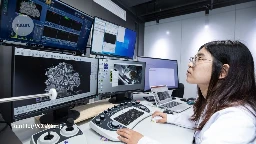
- [article] More and more young Chinese stop looking up to the US.www.scmp.com Younger Chinese ‘more likely to hold negative views of US’
Researchers say that those born after 1990 are more likely to express negative views compared with previous generations.
